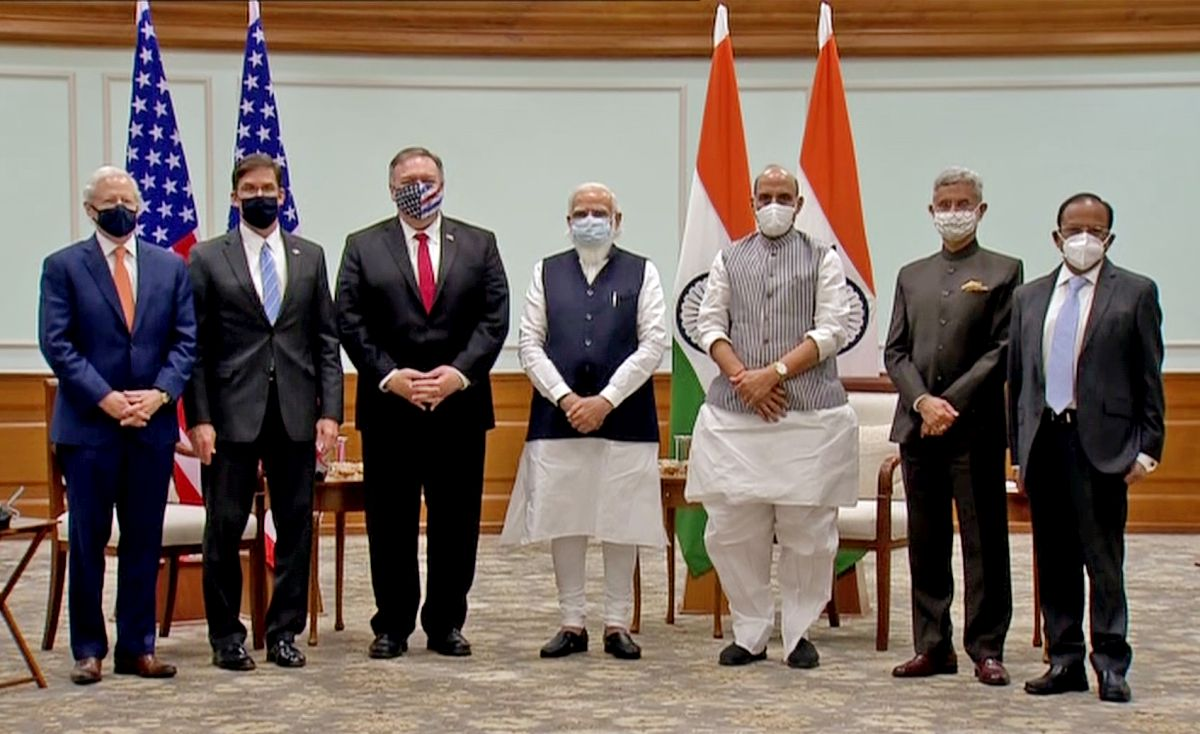As the US presidential elections come closer, the US Secretary of State, Mike Pompeo visited the three countries, which are part of the Indo-Pacific region including India, earlier this week. Pompeo, along with Mark Esper, the Secretary of Defense discussed the India-China spat with the Defense Minister of India, Rajnath Singh and S Jaishankar, the Minister of External Affairs.
In the US-India talks held in New Delhi, Pompeo had openly discussed an anti-China orientation which is to be a part of the Indo-Pacific region. This region is an important region where the US and China have had spats and competitions for several years now. It is also the place where recently, India and China had faced issues, especially in the Maldives and Sri Lanka.
India had been trying to gain the support of the superpower in expanding its footprint in these neighboring countries, without ever interfering in the finer nuances of geopolitical affairs. However, now it seems that it does not mind sharing the power and keeping the middle players in the region closer, in the hope that this will reduce the Chinese influence up to some extent.
Since the Indian military force is already dealing with the Chinese troops at the Line of Actual Control, it has opted to take the support of the US and embrace its proposal of an ‘anti-China tour’. However, at the recent Quad Foreign ministers meeting, S Jaishankar did not join the anti-China proposal. Although, in a joint statement by the US and India, bringing in a ‘rule-based’ international order was stressed upon, against China.
The three countries Pompeo visited, Sri Lanka, Indonesia, and the Maldives are equally important for China and its Belt and Road Initiative. His motivation behind the visits to all the three countries was to explain to the people why China and its Communist Party do not follow any international laws and are considered as ‘lawless’.
Focusing on the Maldives, Pompeo said that China is reflecting its reckless and threatening behavior. Maldives had signed a framework defense and security agreement with the US. However, since Ibrahim Solih became the president of the country, it has formed close ties with China as well as other neighboring countries like India. Dunya Maumoon, the former Foreign Minister of Maldives made a statement on Pompeo’s visit, “We all want a peaceful Indian Ocean, I urge the US to respect the independence of Maldives. Please respect the right of Maldives to keep its friendship with all countries that benefit our development. We do not want to engage in power struggles & rivalries in the Indo-Pacific.”
Sri Lanka, which is considered to be the country highly influenced by the Chinese government, had refused Pompeo’s proposal clearly. Gotabaya Rajapaksa, the President of Sri Lanka said that Beijing has helped Colombo for the past 10 years, and that they share a close relationship. China has acquired the Hambantota port in Colombo, helping Sri Lanka in various Construction and Development projects.
Indonesia’s capital, Jakarta is the headquarters of the Association of South-East Asian Nations (ASEAN), some members of which are influenced by China and some others are its rivals in the South-China Sea issue. Some of the territories of Indonesia are claimed by China, regarding which Pompeo said that the US rejects such ‘unlawful claims’ of sovereign territories by the Communist Party of China.
The author is a student member of Amity centre of Happiness.





